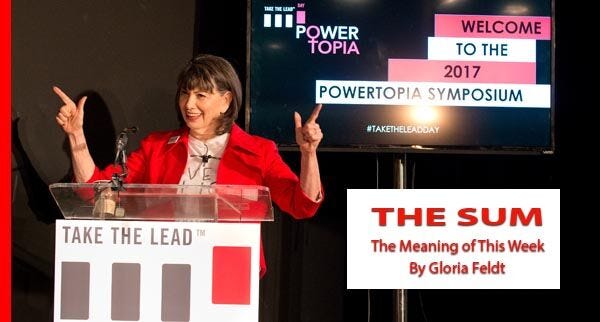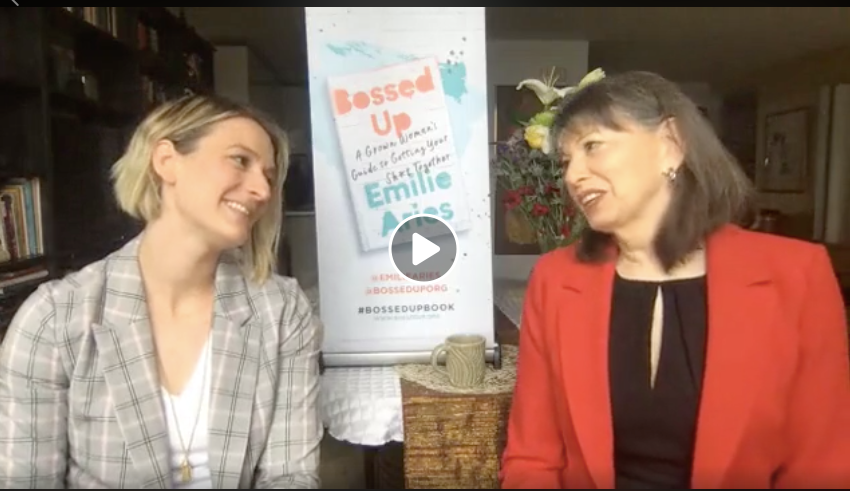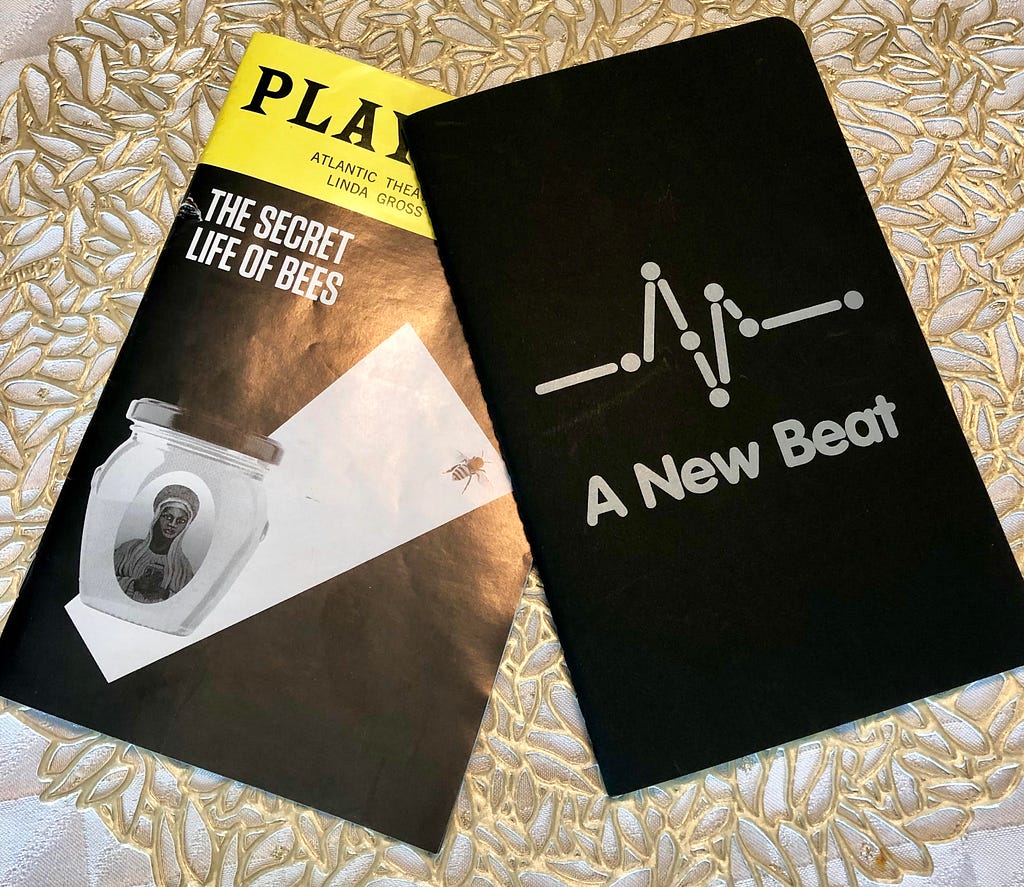Of Burnout, A New Beat, and the Secret Lives of Bees

Issue 96 — May 3, 2019
I was mesmerized by Sue Monk Kidd’s novel The Secret Lives of Bees when it was first released in 2003. Now a new musical scripted by the Pulitzer-winning, MacArthur genius Lynn Nottage, I once again found its complex interweaving of stories and symbols captivating: the buzzing bees, the Civil Rights movement circa 1964 in the Deep South (with overtones so relevant to today), the deeply human stories of African American women who created their own culture in which to thrive in spite of racism and sexism, and what these women teach a troubled white teenage girl about life as she begins to understand her power as a woman.
Of the many possible lessons to derive from this intricate story, here are three relevant to my Sum of this past week in my work to advance women in leadership.
- Work is good, but don’t let yourself burn out if you want to do your best. The bees are intent on their work. They never stop. They know what to do but they require a leader, the queen bee, to be productive. The queen bee is equally dependent on the worker bees, for without them the delicious honey would never be produced.
Lily, a 14-year old girl, runs away from her abusive father with the family housekeeper Rosaleen. They find refuge with the beekeeping Boatwright sisters in the small town of Tiburon, South Carolina. The sisters have a thriving business selling the honey from their bees.
Lily thinks the bees work too hard and should take a rest from time to time. But like many of us, and I’m looking at myself here, who love their work and have few boundaries between work and play, taking time to rest is unnatural and burnout is unknown.
Just this week, I had a chance to get insights from Emilie Aries, whose newly released book Bossed Up: a Grown Woman’s Guide to Getting Your Sh*t Together takes on the subject of burnout head on. As you might have seen, the World Health Organization added burnout to its list of official medical diagnoses. In our conversation, Emilie offered great tips for avoiding, or recovering from, burnout. I’ve learned a lot from her about not being such a busy bee that the joy goes out of life and work.

2. It’s essential for people to see people who look like themselves in leadership to establish trust and healthy self-esteem. The Black Virgin Mary is a central figure in the lives of the three Boatwright sisters, May, June, and August. Mary is not present merely in a spiritual sense but in the form of a larger-than-life statue (originally from the bow of a wooden slave ship) around which the sisters and their friends practiced religious observances.
More importantly, Mary served as a role model to whom they turned to for strength and validation. They viewed her as a symbol of hope and freedom. Her Black Madonna image was emblazoned on their jars of honey. Lily recognizes this image as one that her mother, who died when Lily was four, left in her possession.
Remember this story was set in the segregated South of the early 1960s, where restrictions on where blacks could drink, eat, work, and go to the bathroom were enforced by the white power structure. Rosaleen had to summon great courage simply to register to vote after the passage of the Voting Rights Act.
Racial slights and discriminatory actions were rampant, such as arresting August’s godson Zach, an aspiring lawyer who worked for the beekeepers, for doing nothing other than driving Lily to town. Those incidents in the book and play bear an all too striking resemblance to the perils black men face today — for being themselves.

For the Boatwrights, having the Black Mary as a strong female role model made all the difference in how they saw themselves as businesswomen and leading actors in their own lives.
And while their story is fictional, the “A New Beat” program I participated in last week delivered basically the same message in regard to the importance of leadership by women and minorities in real life healthcare.
A partnership of the Association of Black Cardiologists and the Cardiovascular Research Foundation, A New Beat panelists made a compelling case that the quality of health care improves when people of any gender and race sees people like themselves as clinicians and other healthcare leaders. In fact, women suffering from heart attacks are more likely to survive when treated by female physicians. As a result, my intention is for Take The Lead to launch our 50 Women Can Change the World in Healthcare in both Arizona and New York.

3. We all have hardships to overcome. On the journey to overcoming them, it’s essential for women to embrace their power TO lead and live with intention, confidence, and joy. Lily’s father T-Ray knew only how to exercise power over her as a reaction to his pain about losing his wife Deborah, Lily’s mother. And let’s face it, that’s how men are too often socialized.
That in turn made Lily feel fearful, victimized, and self-limiting. She lived with the stigma of having accidentally discharged her mother’s gun, killing her, in the midst of the scuffle that ensued when Deborah attempted to leave T-Ray. Because of her father’s bitterness, she had never been able to grieve her mother even as she yearned for her mother’s voice and touch.
Lily’s growth came little by little, by observing August run the honey business successfully, by learning from her the lessons of the bees including the importance of the female power structure, and most importantly, how women can be powerful in this world despite challenges. August’s power is the power TO create, to support others, and to make her own life choices. That strong, generative power gave Lily a new view of life’s possibilities.
Lily comes into her own power as a young woman who is smart, confident, and has a point of view. Her empathy for others has grown because of the injustices she witnessed and experienced.
I won’t reveal how Deborah happened to have a picture of the Black Mary or any of the other twists and turns and symbols. If you’re in New York, go see the play. And wherever you are, the book is a great read.
In any case, remember this quote from the epigram of Chapter 14, for it describes women’s leadership perfectly: “But introduce a new queen and the most extravagant change takes place.”
GLORIA FELDT is the Cofounder and President of Take The Lead, a motivational speaker and expert women’s leadership developer for companies that want to build gender balance, and a bestselling author of four books, most recently No Excuses: 9 Ways Women Can Change How We Think About Power. Former President of Planned Parenthood Federation of America, she teaches “Women, Power, and Leadership” at Arizona State University and is a frequent media commentator. Learn more at www.gloriafeldt.com and www.taketheleadwomen.com. Tweet @GloriaFeldt.

GLORIA FELDT is the New York Times bestselling author of several books including No Excuses: 9 Ways Women Can Change How We Think About Power, a sought-after speaker and frequent contributor to major news outlets, and the Co-Founder and President of Take The Lead. People has called her “the voice of experience,” and among the many honors she has been given, Vanity Fair called her one of America’s “Top 200 Women Legends, Leaders, and Trailblazers,” and Glamour chose her as a “Woman of the Year.”
As co-founder and president of Take The Lead, a leading women’s leadership nonprofit, her mission is to achieve gender parity by 2025 through innovative training programs, workshops, a groundbreaking 50 Women Can Change The World immersive, online courses, a free weekly newsletter, and events including a monthly Virtual Happy Hour program and a Take The Lead Day symposium that reached over 400,000 women globally in 2017.
